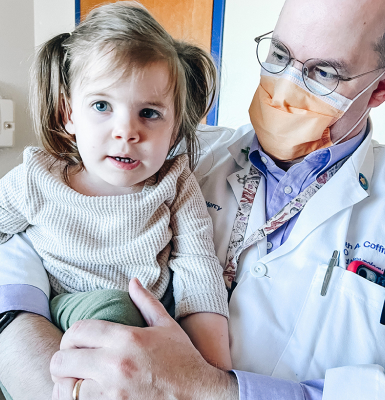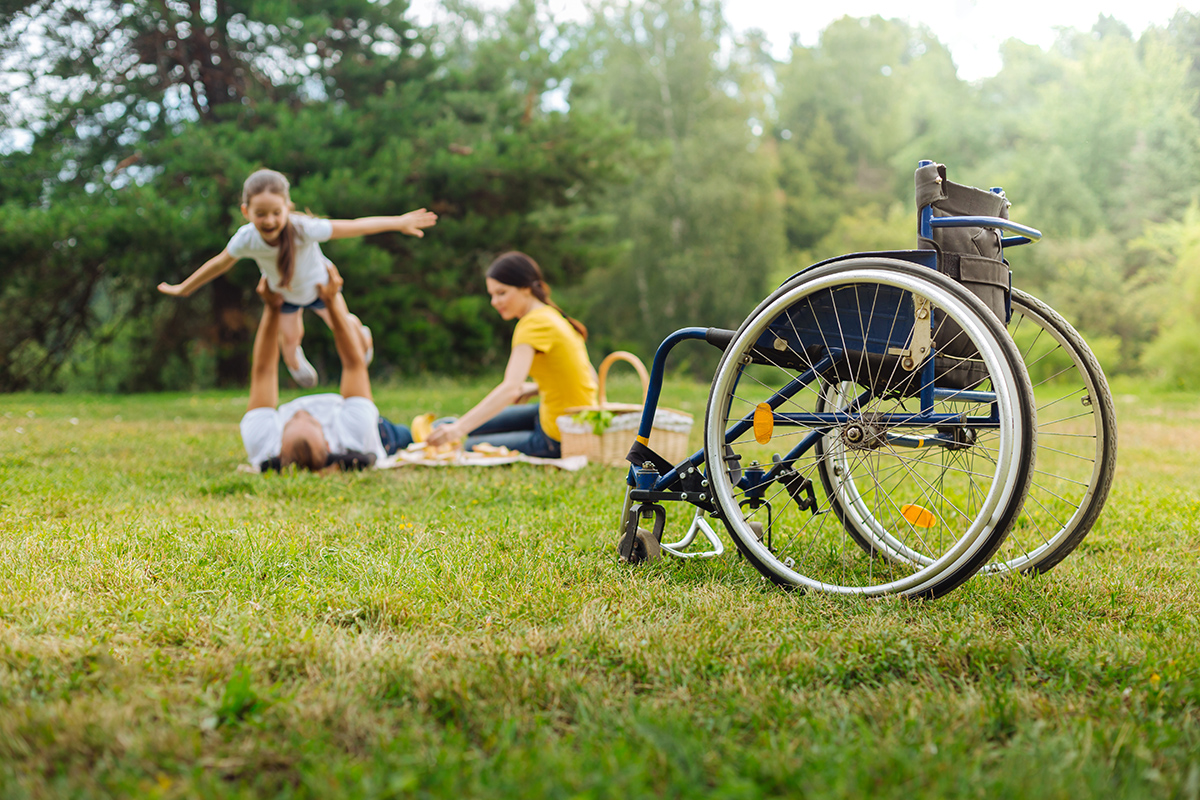ATP1A2 and ATP1A3 are part of the Na+-K+-ATPase family. They are a P-type ATP-powered ion transporter on cell membranes which plays a vital role in cellular excitability. Since 2012, an increasing number of studies have elaborated on the significant contributions of Na+-K+-ATPase to AHC. A summary of the structure and physiological function of Na+-K+-ATPase in AHC follows. Topics covered include:
- ATP1A3 Basics
- APT1A3 Mutation Differences
- ATP1A2 Basics
- Non-ATP Causes
- RHOBTB2 Mutations

ATP1A3 Basics
ATP1A3 encodes a protein that makes up part of a cellular pump. It moves sodium and potassium ions across the cell membrane, allowing our cells to maintain differing concentrations of charged ions on either side, similar to a battery. This difference enables electrical currents to flow into or out of cells, driving action potentials in neurons and other essential cell functions.[1]
- ATP1A3-related neurologic disorders are inherited in an autosomal dominant manner.
- ATP1A3 pathogenic variants may be inherited or occur de novo.
- Pathogenic variants are more commonly de novo than inherited.
- Each child of an individual with an ATP1A3-related neurologic disorder has a 50% chance of inheriting the ATP1A3 pathogenic variant.
- Prenatal testing for pregnancies at increased risk is possible if the ATP1A3 pathogenic variant in the family is known.
- The variability of presentation within a family with a known ATP1A3 pathogenic variant further complicates genetic counseling.[2]
ATP1A3 Mutation Differences
Multiple studies report a milder phenotype in D801N patients with later onset of the paroxysmal events, moderate intellectual disability, and a higher behavioral problems rate. Similarly, patients with this mutation had milder clinical signs than the E815K group. All patients had independent walking, and a lower percentage of cases had alterations in muscle tone on neurological examination. Besides, ataxia, chorea, and action and postural tremor were less frequent than in other groups. However, a higher prevalence of dystonia was observed than in other groups (90% of cases), although no patients had moderate/severe forms. As for the cognitive aspects, they had a lower percentage of moderate/severe intellectual disabilities. The group with various mutations exhibited a later onset of paroxysmal hemiplegic attacks and abnormal eye movements.[3]
Multiple studies confirm a more severe phenotype in patients with E815K mutation, with an earlier age of onset of plegia and tonic attacks. E815K patients most frequently present altered muscle tone, inability to walk, epilepsy, and a more severe grade of dystonia They have moderate/severe intellectual disability and severe language impairment. Flunarizine seems to be more efficacious in patients with E815K mutation than D801N.[4]
G947R, is fairly frequent in European Caucasian cohorts, wherein the same amino acid change is associated with two different missense mutations.
ATP1A2 Basics
Pathogenic variants in ATP1A2 cause familial hemiplegic migraine type 2 (FHM2). Despite high sequence homology with ATP1A3, ATP1A2 variants rarely associate with severe phenotypes resembling those linked to ATP1A3.
Non-ATP Causes
With pathogenic variants in the ATP1A3 gene recognized as causing AHC in nearly 80% of patients, the cause of AHC is unknown for approximately 20% of patients. There are some other known genes that cause AHC in less than 1% of patients, which include CACNA1A and SLC1A3. As additional potential causes of AHC are identified, they will be added to our website.
RHOBTB2 Mutations
Although heterozygous RHOBTB2 mutations were originally described in early infantile epileptic encephalopathy type 64, a 2022 study confirms that they account for a more expansive clinical phenotype, including a complex polymorphic movement disorder with paroxysmal elements resembling AHC. RHOBTB2 testing should therefore be considered in patients with an AHC-like phenotype, particularly those negative for ATPA1A3 mutations.[5]
[1] Smith R, Stankiewicz S. “A ‘Pump’ Gene’s Surprising Role in Early Brain Formation: A Mutation in Four Children with Polymicrogyria Illuminates the Role of Bioelectricity in Early Brain Development.” EurekAlert! 2021 Jun 14.
[2] Brashear A, Sweadner KJ, Cook JF, Swoboda KJ, Ozelius L. ATP1A3-Related Neurologic Disorders. 2008 Feb 7 [updated 2018 Feb 22]. In: Adam MP, Ardinger HH, Pagon RA, Wallace SE, Bean LJH, Gripp KW, Mirzaa GM, Amemiya A, editors. GeneReviews® [Internet]. Seattle (WA): University of Washington, Seattle; 1993–2022.
[3] Cordani R, Stagnaro M, Pisciotta L, Tiziano FD, Calevo MG, Nobili L; I.B.AHC Consortium, De Grandis E. Alternating Hemiplegia of Childhood: Genotype-Phenotype Correlations in a Cohort of 39 Italian Patients. Front Neurol. 2021 Apr 8;12:658451.
[4] Cordani R, Stagnaro M, Pisciotta L, Tiziano FD, Calevo MG, Nobili L; I.B.AHC Consortium, De Grandis E. Alternating Hemiplegia of Childhood: Genotype-Phenotype Correlations in a Cohort of 39 Italian Patients. Front Neurol. 2021 Apr 8;12:658451.
[5] Zagaglia S, Steel D, Krithika S, Hernandez-Hernandez L, Custodio HM, Gorman KM, Vezyroglou A, Møller RS, King MD, Hammer TB, Spaull R, Fazeli W, Bartolomaeus T, Doummar D, Keren B, Mignot C, Bednarek N, Cross JH, Mallick AA, Sanchis-Juan A, Basu A, Raymond FL, Lynch BJ, Majumdar A, Stamberger H, Weckhuysen S, Sisodiya SM, Kurian MA. RHOBTB2 Mutations Expand the Phenotypic Spectrum of Alternating Hemiplegia of Childhood. Neurology. 2021 Mar 16;96(11):e1539-e1550. doi: 10.1212/WNL.0000000000011543. Epub 2021 Jan 27. PMID: 33504645; PMCID: PMC8032376.




